

On this page
People who live in our villages have put together a few short snippets of their memories of the Second World War, some funny, some tragic.
Imagine jumping out of an airplane in the pitch black and having your parachute fail to open; or your best friend blown up beside you - returning to the comparative trivia of civilian life would be hard to deal with.
And who amongst us was the Black Market criminal mastermind?
Read on for these and other stories...
An enemy trying to identify this strategic HQ from the air back then would find it extremely difficult - Why ? See aerial view today
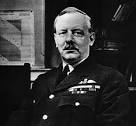
Air Marshall Arthur 'Bomber' Harris remains one of the most controversial military commanders of World War Two. Arthur Harris was a believer that the bombing of civilian targets and, as a result, civilians, would shorten World War Two. Harris commanded Bomber Command during the Allies massive air campaign against Nazi Germany between 1942 and 1945. More here:
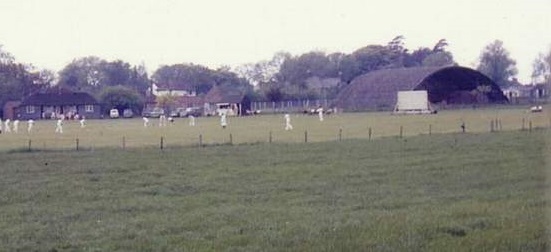
The flat fields around Stocken Farm were bulldozed to make the airstrip. There were daily flights to an airfield in Hertfordshire and also to France for the Air Chief Marshall, Sir Arthur Harris.
A "Blister" Hangar was erected around the area where the school swimming pool used to be. Local lads, including Gordon May, used to help push the planes into the hangar. Andrew Oliver (see below) was one of those who flew from this airstrip. He was given 6 flying lessons, and then he was on his own.
They built a new road between the airfield and Bomber Command at Walters Ash. There is a story that 'Bomber' Harris, who used to keep his private plane - an American Stinson - at the airfield, actually landed on the road prompting a visit from Pc Goldsmith. The story goes that the meeting was most cordial, Arthur Harris offering a seat and a drink - I'm sure it was tea. No more was said on the subject and it never happened again. Andrew Oliver used the airstrip and knew Arthur Harris and his pilot - D. B. Jones - very well.
Douglas Tilbury
See - More information on the airfield from Doug Tilbury
Evacuation began on Friday 1st September when more than 1.5 million children were sent to the countryside and places-of-safety to be billeted with families. Hundreds were sent to Princes Risborough and the Parish Councils were given the lot of finding accommodation. At Lacey Green, Johnny Saunders, the Chairman of the Parish Council, visited Lacey Green School to encourage children to talk to their parents to accept evacuees out of London into their homes. My two sisters pleaded and my Mother agreed to two girls.
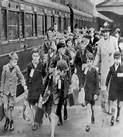
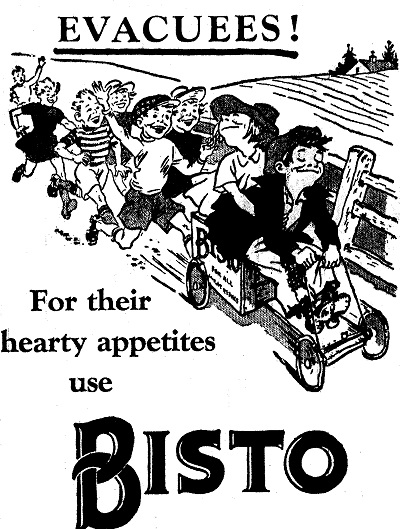
Saturday morning a train from London arrived at Princes Risborough station and three girls joined our family, Rita and Blanch from one family and Eileen, an only child, from another family. They, with us, attended St John's School and we were frequently pulled out by the Bug Nurse. My Mother purchased a Stainless Steel Comb to Comb out the undesirables! It hurt our heads and I have never forgotten.
Many houses in Lacey Green had evacuees and a children's home was evacuated to Loosley House. Some of the evacuees came from poor housing and my mother was devastated when we caught nits and had to be treated by the school "nit nurse"
Thirty children were billeted in Lacey Green and Loosley Row who attended Lacey Green School. An extra teacher from London, Miss French, came to assist the teachers.
The day war ended the parents of the evacuees caught a train to Princes Risborough, walked up and collected their Children to take back to London. The parents of one child didn't bother to thank my parents or even say Goodbye.
Douglas Tilbury.
When the war broke out, we had spare bedrooms, so we were expected to take evacuees. Andrew thought it would be nice to have a child from Barnardos where he himself had been placed after he was orphaned at the age of 4. Instead we were sent a mother with a small boy who had been living in poverty.
The child ran all over the house without any nappies. When I complained that he was urinating everywhere, they both went home.
We then had a relative's daughter, and finally, a delightful girl from Ealing who had been evacuated with her school to Wycombe High School.
Doris Oliver

My father Andrew Oliver was involved in the development of the Mosquito. He worked in a factory in Wycombe and was an expert on glues. He attended top secret meetings at Salisbury Hall, near the De Havilland works, where the plane was designed.
Parts for the plane were made in many of the Wycombe factories. A great many women were employed as most of the young men were at war.
Bomber Harris ordered Dad to inspect every plane which came down in England. He used Harris's private plane to fly to the crash sites to see if the accident was due to a failure in the glue, but it never was!
Rosemary Mortham nee Oliver
More Information on the Mosquito and Andrew Oliver
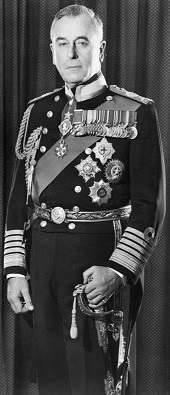
Mountbatten was a British naval officer who oversaw the defeat of the Japanese offensive towards India during World War Two. He was appointed the last Viceroy of British India and first Governor General of independent India.
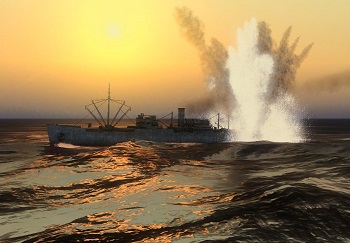
I was a Naval Gunner on an escort oiler, a Merchant Ship, supposedly disguised to look like a tanker. We survived heavy fire around Sicily, but were torpedoed while sailing on to Greece. Thank God, the fuel and ammunition did not catch fire. We abandoned ship, but were able to get back on board and managed to limp into Tobruck.
Brian Panter
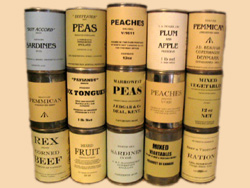
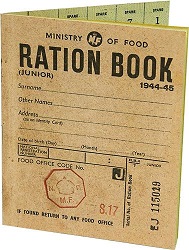
My first memory is of the air raid siren and being in the Anderson shelter in the garden. This seemed quite normal at the time and I wasn't at all frightened of the bombs. My mum told me later that we had lots of narrow escapes. My gran was bombed out of her West Ealing home.
I liked powdered egg more than real ones, and I liked Spam, although I never liked meat. My first taste of a banana was a real disappointment. I didn't seem to like fruit at all.
Rita Probert
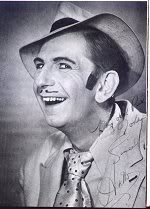
Harry was coming home one dark night with a black market side of pork in the boot of his car, when he spotted the local policeman behind him. He was rather worried but continued home, hoping that nothing would happen. Unfortunately the police car followed down his drive and Harry got out in fear and trepidation. The policeman then said, "Harry, did you realize that one of your rear lights is not working" ...Phew!
Dad had a very sweet tooth and decided to keep bees during the war. An allocation of sugar was made to keep them alive during the winter. Dad made two hives, and put bees in one. When the inspector came it was a hot day and bees were flying about everywhere. He was satisfied that we had two hives of bees and we received a double ration.
Rosemary Mortham
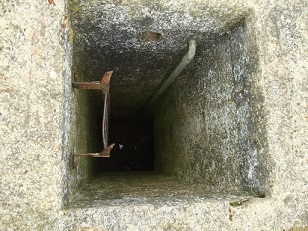
We went on holiday to our relative's farm near the Suffolk coast but we were not allowed to go to the sea. There were rumours that some of the farm workers had rifles and dugouts to defend against invasion. The outside toilet was stuffed with ammunition. I now think that they were part of the S.O.E.
John Mortham
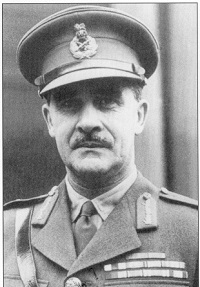
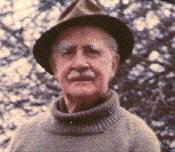
Major General Sir Colin McVean Gubbins KCMG, DSO, MC.
Founder & First Commander of The S. O. E., lived at White House Farm., Kiln Lane, Lacey Green
Born: 12.07.1896 Shiba, Tokyo, Japan
Parents: Younger son and third child of John Harington Gubbins, CMG (1852-1929), Oriental Secretary at the British Legation and Helen Brodie McVean (1869-1922)
Educated: Normanton Grammar School, Yorkshire; Cheltenham College; Royal Military Academy, Woolwich; Staff College (pac)
Died: 11.02.1976 Stornoway, Hebrides
Commissioned: 16.09.1914 [Army No. 14618] Royal Field Artillery
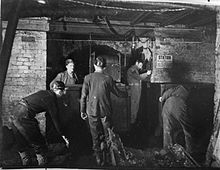
At 18, I was conscripted, and I was one of the boys selected to become a Bevin Boy, and work in the pits, even though I was already working in a reserved occupation. I was trained at Creswell where the famous Colliery Band practiced. I was underground for 4 years and ended up at Langley Mill where I met my wife.
I knew no one and it was a great change from what I had been used to. Jimmy Savile and Eric Morcambe were also Bevin Boys.
Ted Janes
From Wikipedia, the free encyclopedia:
Bevin Boys receiving training from an experienced miner at Ollerton, Nottinghamshire - February 1945
Bevin Boys were young British men conscripted to work in the coal mines of the United Kingdom, from December 1943 until 1948. Chosen at random from conscripts but also including volunteers, nearly 48,000 Bevin Boys performed vital but largely unrecognized service in the mines, many of them not released from service until years after the Second World War ended. Ten percent of those conscripted aged 18-25 were selected for this service.
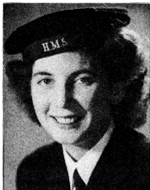
I joined up at seventeen and a half as a Wren and worked as a topographer. Unknown to me I was working on Sword Beach when the invasion occurred. After that, I was sent to Ceylon, and worked for Mountbatten on the proposed invasion of the Malaysian coast. Unfortunately, Intelligence failed to realize that the area contained quicksand, and the attempted invasion failed.
On August 15th 1945, the Americans dropped the atomic bomb on Hiroshima and thus, ended the war. Our homecoming ship collected all the poor men from Changi jail. They were a pathetic sight which I shall never forget. Some died on the journey home.
Pam Lidgeley.
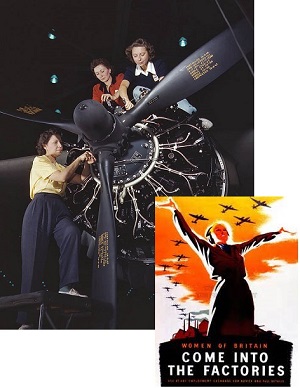
At the beginning of the war, I decided that, rather than being told what to do; I would seek work at the factory near where I lived. I was sent to Marchwood for training in engineering.
At first I was put on a bench where we put brass ferules into tank gearboxes. Then I fitted tappets, and later, oil seals, into Merlin engines.
We were near Birmingham but there were only occasional bombs. However we lived on a hill and could see all the fires around.
Trudy Saunders
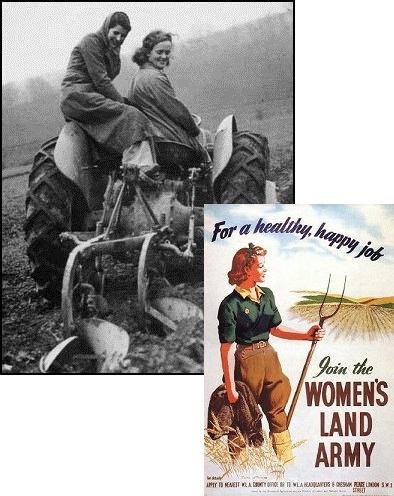
Mucking in, the Women's Land Army had a rather soft 'girls' school' reputation at first, but it soon turned out to be one of the hardest jobs open to women. The working week was 50 hours - and much more at harvest time.
I was one of 24 Land Girls who were billeted at Wardrobes. The owners were not there, but we had a Warden to look after us. She was strict, and gentlemen callers were not allowed in the house. We had reasonable food, but only the amounts allowed by rationing. There were two uniforms, one for work, with no tie. The other was just for best, and this was worn to the dances at the Village Hall where the band was run by Jack Parnell, the son of the famous Val Parnell.
We went out in groups of six on lorries to nearby farms. I well remember threshing with a threshing machine. When we wanted a rest, we used to detach the belt, and it would take a few minutes to get it put on again. It was hard work and eventually I injured myself and had to be sent home. I was then sent to work on Lancaster bombers.
Joan Cooke aged 91.
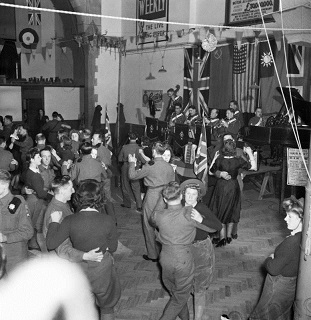
I had just left school. A gang of us girls used to go to the dances at the Liberal Club and the Town Hall in Wycombe. There was never any shortage of partners as Wycombe was a garrison town. My friend's mother worked for the YMCA, so we always knew when new men were arriving. I was having a wonderful time!
We also went swimming at Bourne End, and I often went to the theatre in London to see all the great stars like Noel Coward. I was never worried by the bombs.
When the docks were hit, the flames lit up the night sky, and could be seen from Wycombe.
Joyce Delnevo.
"A" Company Bucks Battalion, Home Guard
In 1940, 55 men and 3 women were recruited from Lacy Green, Loosley Row, Great Hampden, Speen and Bryants Bottom. The Pink and Lily was the headquarters where the landlord, Captain Fairbrother, became CO.
Doug Tilbury
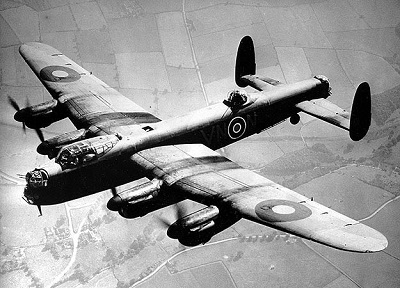
On the night of Friday July 7/8 1944, I was in a Lancaster bomber over France. It was on our third run that we were hit and set on fire. Our pilot gave the order to abandon the aircraft. It was my responsibility to open the escape hatch and I well remember thinking that I mustn't waste time and hold up the rest of the crew. Eventually five of us got out, but sadly, two did not make it.
I don't know how much height we had lost before I bailed out. Fortunately we must still have been fairly high because when I pulled my rip cord the handle came away in my hand. However, there was still enough height to permit me to "thread out" the chute by hand. I landed safely on the side of a bomb crater at the edge of an aerodrome.
Michael Cockrean

In the past, Norduck Farm was part of the Aston Abbotts Abbey estate. During the second world war, a number of nissen huts were built along the drive leading to the farm, and these were used as accommodation for members of the Czechoslovak government-in-exile and Czechoslovak troops.
Camp at Norduck farm, Aston Abotts. The farm was first occupied by part of the Czech government-in-exile housed in Nissan huts which subsequently needed renovation. Meanwhile the tented camp seen here in 1945-6 was in use by German prisoners.
Mary Mountain (Wingrave WI)
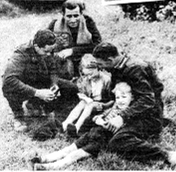
Friend or foe? Italian POWs were a common sight on farms in the West Country, as were evacuee children from London. It was no surprise that these two groups, both far from home, found a way to make friends.
John West born 1937 at Stocken Farm.
During WW2 every spare room at Stocken Farm was taken by Bomber Command for officers and their families, but also John's mother's father (Grandad Crook) and Harry Floyd, who came temporarily to recuperate from bronchitis. Both were still with them thirty years later.
John got friendly with the prisoners of war who worked on the farm. They begged worn out hessian sacks to make rope shoes to sell, for they were not given money. The bread they brought for their lunch was often green with mould. They longed for crusty bread from the bake-house. John secretly bought bread for them with the cash they made.
They lived in a building at the bottom of Smalldean Lane. Others working in Highwood Bottom.
[Italians} cooked wonderful chips and gave some to John in exchange for a football. They all liked to work overtime for then the farm provided a packed tea.
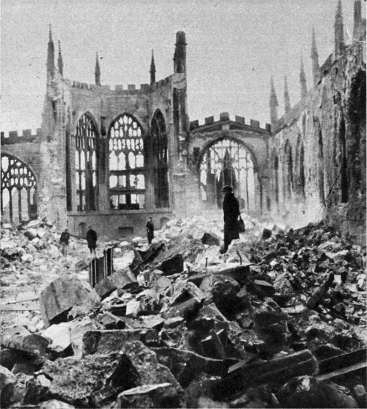
I lived in Coventry in World War Two when I was aged 11 to 16. Our family first lived one mile west of the centre near my Dad's workplace at the respected Europe wide leading engineering firm of Alfred Herbert Ltd. We we were in danger of being bombed.
We then moved to Hen Lane on the Northern outskirts of Coventry, fronting the countryside. From there, I and my four siblings were evacuated in 1939. We all lived at different addresses but my Dad used to walk seven to eight miles from our home every weekend to see us.
I was apprenticed to A.C.Wickman Ltd. on the extreme western edge of Coventry.
Norman Tyler
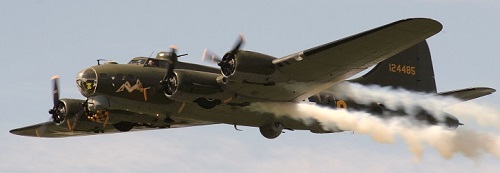
On the morning of the 13th November 1943 I was standing on the platform of Risborough station waiting for the train to Thame with three or four school friends when we saw a B17 (flying fortress) in trouble.
It was trailing smoke and was on fire. Losing height rapidly and looking as if it would crash in the middle of the village, it increased the power of its remaining engines and gained a little height, banked hard to starboard and crashed in a field next to Thame railway, one field south of the Bledlow road. A spectacular explosion and firework display of tracer ammunition followed.
The pilot was killed in the crash and the plane was completely destroyed. The remainder of the crew had bailed out towards Haddenham.
Ronald Goodearl
B-17 Flying Fortress G-BEDF Sally B is the last remaining airworthy B-17 in Europe. She is based in the UK from where she flies regularly at air shows, memorial flypasts and commemorative events as a memorial to the USAAF in Europe. Since 1982, Sally B has been operated by Elly Sallingboe of B-17 Preservation with the help of a dedicated team of volunteers and the backing of one of the largest supporters clubs of its kind in the world - the Sally B Supporters Club. Sally B is maintained by Chief Engineer Peter Brown and his team of volunteers, and flown by volunteer experienced professional pilots.
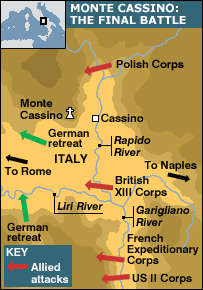
Edward had been in the Territorial Army so he was in the war from the very beginning. He became a Sergeant in the British Army. His group was making their way up through Italy, fighting as they went. There was a Long and bloody battle at Monte Cassino with a huge loss of life to capture the high ground. Edward was injured, and his great friend was blown up right in front of him. This severely affected him, and he was never the same again.
Eileen Thomas
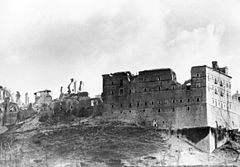
The Battle of Monte Cassino was one of the toughest battles fought in Western Europe in World War II, and still one of the most controversial. The allies were fighting their way up from southern Italy towards Rome, and the monastery of Monte Cassino stood at the strongest point of a powerful German defensive line.
The battle for Monte Cassino was one of the most devastating of World War Two. The battle took four months, and by one estimate it left a quarter of a million dead or wounded. Matthew Parker, the author of a recent book on the battle, writes "Only the bloodbaths of Verdun and Passchendaele, or the very worst of the Second World War fighting on the Eastern Front, can compare to Monte Cassino."
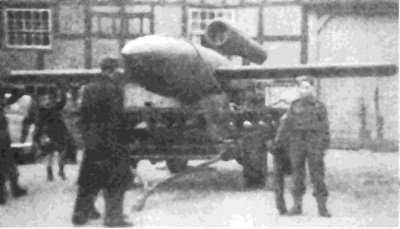
David Hunt, of the Oxon & Bucks Light Infantry Cadet Force, Risborough Unit, guards a 'doodle-bug' or V-1 bomb which landed harmlessly on Kimblewick Farm. 1945.
I had just started Secondary School when my whole school was evacuated from London to Northampton. A year later, when the blitz started, my mother took me to Wales and I started at the Welsh speaking village school. At the end of that year, we returned to London, just in time for the doodle-bugs! My education ended just as the war finished.
Doreen de Grey

Celebrated on the 8th May 1945. Princess Elizabeth and her sister join the King and Queen on the balcony at Buckingham Palace to share the jubilation of the people at the news of the surrender of Germany the day before, after nearly six years warfare.
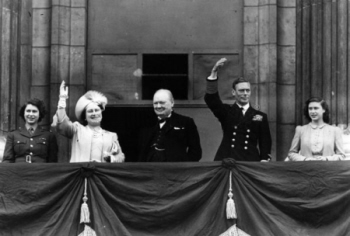
On V. E. Day, I remember being in front of Buckingham Palace, sitting on Dad's shoulders, and seeing the King and Queen and the two Princesses on the balcony. They were later joined by Winston Churchill. I was afraid of the crowds of people cheering, although bombs and air raids had seemed normal to me!
Rita Probert.
Thomas Hugh Young Caldwell.
Lieutenant 193211.
Royal Engineers attd. King George V's Own Bengal Sappers and Miners,
died 10.10.1942, aged 29.
Rawalpindi War Cemetery, Pakistan. (Grave Reference 1 E 13.)
Son of James and Blanche Brunhilde Caldwell.
Memorial window, St. Mary Magdalene Church, Great Hampden, Buckinghamshire.
Reginald Bob Dell.
Pvt 5387187.
2nd Oxford and Bucks Lt Infantry,
died 2.2.1945, aged 27.
St. John's Churchyard, Lacey Green, Buckinghamshire.
William Bernard Frederick.
S/Ldr, 10091.
RAF
died 2.3.1941. Aged 54.
St. John's Churchyard, Lacey Green, Buckinghamshire.
Albert Victor Greenmon.
Senior Second Engineer Officer,
Merchant Navy,
died 16.12.1944, aged 39.
Lost at sea. (M.V, Regent Lion (London))
Commemoration Panel 86, Tower Hill Memorial, London.
Reginald Charles Jordan.
Gp. Captain.
126 Sqd. RAF,
died 23.6.1943, aged 36.
Malta Memoriai, Panel S, Malta.
Husband of Anne Longheed Jordan, South Kensington, London.
Son of Robert and Alice Jordan.
Frank William Lacey.
Gunner 1718256.
327 Btt. 79th Lt. AA Regt. Royal Artillery,
died 10.5.1944 aged 35.
Cassino War Cemetery, Italy. (Grave Reference II E 21.)
Aubrey Clifford Rixon.
L/Cpl 539276.
1st. Bn. Gordon Highlanders,
died 27.2.1945, aged 22.
Lacey Green Methodist Church Cemetery, Buckinghamshire.
Harold Stevens.
Pvt 6094979
2/6th Bn. Queens Royal Regt. West Surrey,
died 17.1.1944, aged 26.
Minturno Cemetery, Italy, (Grave Reference VII K 24.)
Lucian Dennis Julian Watson.
L/Cpl 2193322.
59th Field Comp. Royal Engineers,
died 16.5.1944, aged 25.
Cassino War Cemetery, Italy. (Grave Reference XIV G 14.)
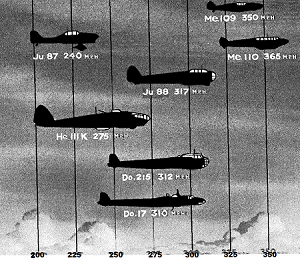
I started school at St. John's at the outbreak of World War Two. My thoughts go back to hearing the sirens at Princes Risborough warning of an air raid. Lying in bed in my tiny bedroom I could hear the German bombers flying overhead. Their engines were desynchronized and made a very recognizable sound. They put fear into our hearts as they made their way to the industrial towns in the Midlands, particularly Coventry.
I recall the feeling of relief when I heard the "All Clear". My heart went out to the German children who were bombed by our planes.
Who needs war?
Douglas Tilbury
Mickey Mouse child's gas mask
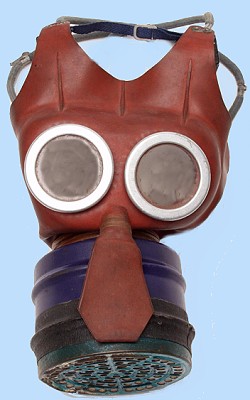
There was a special gas mask for children and for babies
My brother had a baby gas mask, which was really quite scary. I had the "Donald Duck" variety
My dad had fought in the First World War and had also been a Captain in the Indian Army, but he still wanted to do his bit. Each day he went to work in London. I believe he was doing something with armaments.
I remember going to the V.E. Celebrations at the Harrow in Hughenden.
Di Bradley

I was at school in Oxford. When the siren went, we were supposed to go to the school air raid shelter. I used to run home as fast as I could - there we sheltered under the dining table in a Morrison shelter.
My dad was working for the Oxford Colleges where part of the Admiralty was secretly located. The lights on his bike were so obscured that he often ran into things in the dark!
Mum managed our rations as well as she could, but we could get a meal for a shilling at the British restaurant. I was always hungry, and soon learnt to eat anything.
Most of my toys were homemade. The radio, on which I loved to listen to ITMA (It's That Man Again), was fuelled by an acid battery.
John Mortham
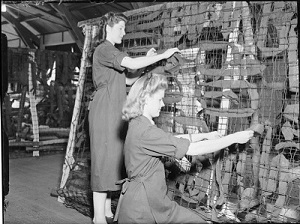
I had a young family, but a group of four or five of us ladies used to make camouflage nets at a house up the road called Field End. We had to tie coloured ribbons onto them, which had to go in exactly the right place - as if that would have made any difference! Actually it was quite fun, and we enjoyed the company.
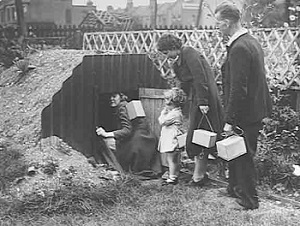
There was an air raid shelter in my mum's garden.
Connie Baker